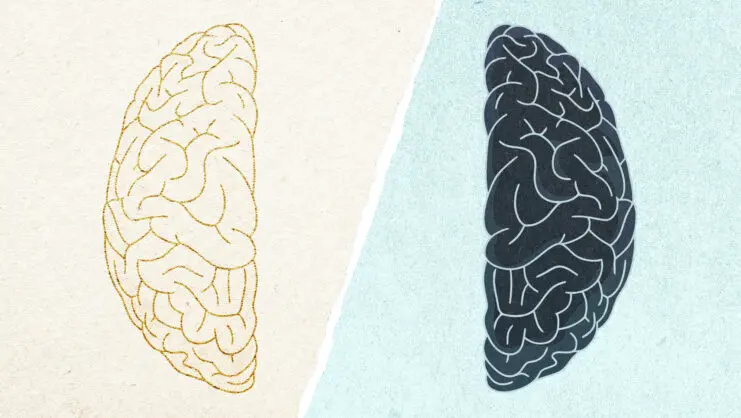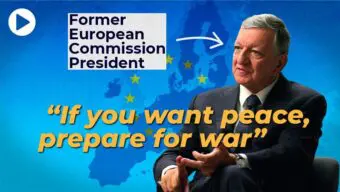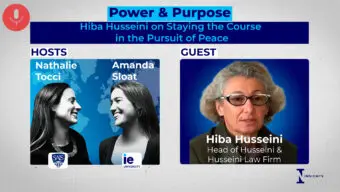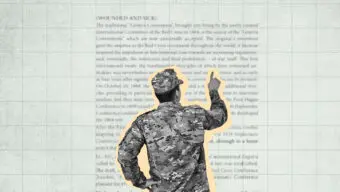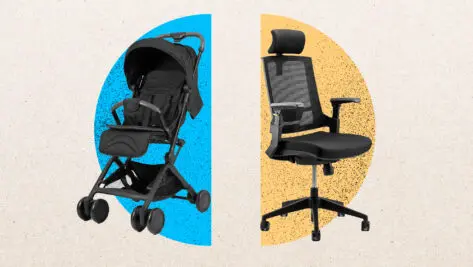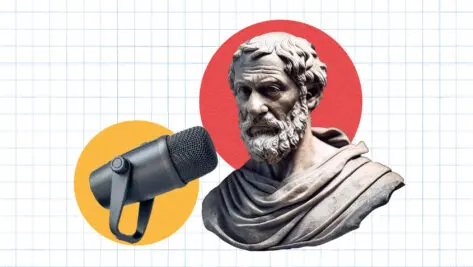Federica Mogherini on Trump, Iran, and When to Step Away
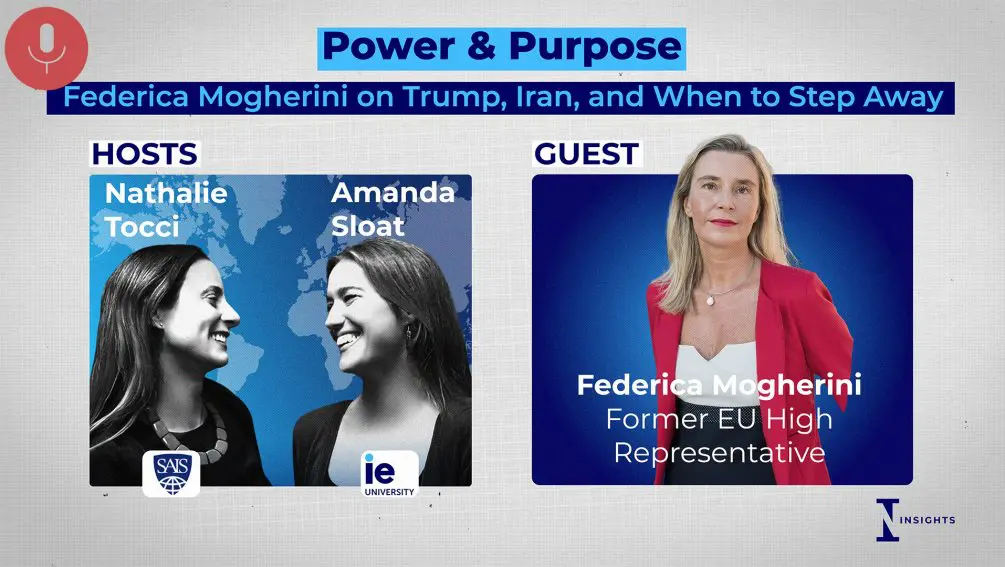
Amanda and Nathalie welcome their first guest, former EU High Representative Federica Mogherini, for a candid conversation on Europe’s security awakening and the making of the EU Global Strategy. She reflects on the impact of the first Trump administration, the undoing of the Iran nuclear deal, and why defense cannot be the only instrument used in foreign policy. The trio discuss the challenges of life in public service, the importance of setting boundaries, and knowing when to step away.
Extra reading:
The EU Global Strategy overseen by Federica Mogherini
The Making of the EU Global Strategy by Nathalie Tocci
© IE Insights.
Transcription
Amanda Sloat
Welcome to the second episode of Power and Purpose. We are delighted to welcome as our first guest Federica Mogherini. She’s currently serving as the Rector of the College of Europe, which is located in the lovely town of Brugge, Belgium. Previously, she served as the European Union’s High Representative for Foreign Affairs and Security Policy, where notably, she was Natalie’s boss. And prior to that, she served in Italy as Foreign minister and as a member of Parliament. Federica, welcome to the show.
Federica Mogherini
Thank you for having me. It’s great to be with you.
Nathalie Tocci
So Federica, when you were a High Representative, when I was your special advisor, there was a lot of work that you did on European defense, and it really felt like this is the moment. And of course, back then there had been already a few things happening. Russia’s annexation of Crimea, absolute mayhem in the Middle East.
So it felt obviously that there was a very sharp deterioration of the security context. And a number of things were done. But here we are today. And today, obviously, the situation is dramatically different and in many respects dramatically worse. And so, I guess my first question to you would be what do you actually think about the steps being made, by Europe today or have been made by Europe over the last years, but particularly this acceleration, over the last few, few months.
And in fact, the last couple of years, I would say, on defense. How does this relate back to the work that was done? And where is it really that we should go moving forward?
Federica Mogherini
Well, thank you Nathalie for this easy first question, but it’s great to see you again and to work together. I would like to correct a little bit the very beginning. I was never your boss. I would have never have dared to be your boss. And it was a pleasure, and still now here at the College of Europe, I often reflect with our students about the global strategy we did together. And all of that wouldn’t have come together without your support, your work. So let me start with that. Indeed, at that time, we’re talking about 2014, 2019, it felt already that the world order was collapsing.
International speech, and the system was not, in French we would say à la hauteur. Managing the stakes, managing the challenges, in an effective way. I would say that for a few years the multilateral approach was still holding, we achieved a couple of things that were really remarkable, the nuclear deal with Iran, the Sustainable Development Goals in the UN framework, a few other things.
But then rapidly that multilateral set up started to become definitely not effective anymore, for different reasons. I would say that what we started to do in Europe at that time, especially in 2016, 2017, and beyond that, I see that as planting the seeds of what then the European Union has developed, much more rapidly and boldly, in the last three years after the full-scale invasion from the Russian side of Ukraine. Especially on the defense side everything that was done in this last three years in terms of military support of Ukraine, in terms of also budgetary allocations for everything that its military, within member states somehow, but to a certain extent only, but within the European Union as such, would have been completely inconceivable in 2014, 2015, even in 2016, 2017.
It was extremely controversial when we established the European Peace Facility, there was a huge discussion in the European Parliament, but also in the Commission and within member states when we militarizing the budget, aid, the government, and we were talking about something really minimal compared to what has been done afterwards. So somehow I think that what is happening today is a build up of what we started to plan, started to build back then. I think it was much needed. It was much needed already then, probably it was much needed even in the decades before. Because somehow building up the defense pillar of the European Union, we always referred to the European pillar of defense.
But to me, it’s the defense pillar of the European Union that was missing for decades. That was something that was needed. Now it’s dramatically needed, of course, because the threat and the challenge is touching the European continent so much. But I would say it would be needed anyway, because military is one of the instruments that we need in international relations and foreign policy. It is not the only one, it is never, in my view, the effective one if it’s the only one, you always need a political track. You always need a diplomatic channel. You also need the economic pressure and so on and so forth. But, of the totality of the instruments that European Union has always had, this one was the one missing. And I’m happy that it’s being built. Having said that, indeed, I think that the mistake would be to believe that this is the only one that can solve things. In my view, none of these instruments is alone ever sufficient. But you need all of them. So hopefully, we’re going to continue in this direction, without losing track of the other instruments of foreign policy that are equally important and especially the diplomatic and the political one.
Nathalie Tocci
Let me ask you perhaps another question, a little bit possibly uncomfortable, I don’t know. So when you were in office, Donald Trump was elected the first time. And actually one thing that you were mentioning the Global Strategy, one thing that I remember very, very distinctly. I don’t know if you remember this, I remember you telling me, and it must have been maybe May or June 2016. And you said to me: Nathalie re-read what you have drafted, and think through whether it would still make sense if Brexit were to happen, so it was before obviously the referendum, and if Donald Trump was elected president of the United States.
Federica Mogherini
I do remember that.
Nathalie Tocci
I’m just wondering sort of fast forward to today, what’s your assessment in terms of how we as Europeans are handling the second Trump administration?
Federica Mogherini
I do remember, and I can add a personal memory to that. I also remember that, I think it was the very last day before printing global strategy, we were sitting together with two other colleagues. You were connected, I think, on the phone, in my kitchen at home. And we were going through that again and writing the preamble in view of Brexit that had actually happened.
So, I do remember that, and by the way, I think the Global Strategy still holds with what is happening now. Yeah, a couple of things might have been redrafted, but I think that it still holds perfectly well. But the Trump administration, well during that first term, we were thinking, first of all we were discovering things, and the magnitude of the impact was much less because the obviously he was still getting to know the system.
And he didn’t have the entirety of the system under control. And there were interlocutors in the administration with which we managed to work, relatively normally, I would say. I think now obviously it’s a completely different story. He has the agenda much more clear in his mind. He knows how to operate the system much better than was the case back then. But also at that time, we were thinking that he would have been transactional, and so the entire work was to consider how we could have been transactional enough to interrelate to him and get something done. And there were some files on which this was still possible. I think that now, we are much beyond transactional, because a transactional person is a person in which you can clearly see what he or she wants.
We are in the field of total unpredictability. The only predictable thing is that things will be unpredictable, all the way, so there’s no compass anymore. And in this context, for an organization like, for a body, for an entity like the European Union that works on predictability and the rule of law, which is in the essence of predictability because you have some rules that determine how you orientate your actions. This is probably the most difficult scenario, complete. I mean, it would be easier to act with an interlocutor or a partner that has a completely different opposite agenda than yours, but you see it. Here, I think the main difficulty is that you do not see where the endgame is at all. At all. Is the European Union reacting well or interacting well with the situation?
I think as the European Union does, it’s trying to do its best with the situation that it has, which is already a lot, I think, first of all, still with keeping the unity, which is quite remarkable. We were betting already in 2016 that we would have lost pieces and bits and pieces here and there. Actually, we stayed together and even stronger, I would say. And here again, yes, you hear voices that are saying things slightly differently. But when it comes to the actions, when it comes to the decisions, we’re still holding together, which is at the end of the day, the strength that we have. So that is working. And I think that given the current irrational and illogical contexts, we’re doing pretty well. I mean, we could have done much worse, let’s put it this way. But yes, the situation is much, much worse than, than it was in 2016. Definitely.
Amanda Sloat
Speaking of that time and unpredictability of things, I wanted to ask you about, Iran. Obviously one of the signature foreign policy achievements of your time in office was the JCPoA, the Joint Comprehensive Plan of Action negotiated with a number of European countries, the United States, with Iran, finalized in July of 2015. Trump ended up withdrawing from that agreement in 2018, soon after he had come into office. And Iran obviously has continued to evolve, including military strikes, by Israel in cooperation with the US earlier this year. So I’d be interested in any reflections that you want to share on the policy side of how things have evolved with Iran.
But I’m also very interested on the personal side. I think one thing people don’t necessarily realize is when you’re in government, you kill yourself working around the clock on a policy issue. And then things evolve. And it is possible for successors to undo that policy. So I’m also interested for you, someone who was so involved in these Iran negotiations, what it is like from the outside to watch your hard work undone and watch things continue to evolve in a direction that’s different from what you might have envisioned when you were in government.
Federica Mogherini
Of course, you’ve seen a lot of frustration but the most prevailing feeling, I would say in this case, for me, at least, was not the frustration on the fact that your work has been undone it’s the worry about trends, the impact that it has on real lives and on the geopolitical context. Why am I saying this? It has happened to me a couple of times, not much, I have to say. I was lucky it only happened to me a few times that I have seen work that I was proud of being dismantled. And that obviously creates frustration. But the maximum frustration comes when you realize that something bad was there to prevent a very negative situation to happen.
In the case of the JCPoA obviously, we were very much aware at that time that the deal was there to help prevent war. The alternative to achieving a deal would have been military strikes, and potentially an escalation in the region and a nuclear arms race in the region and beyond. So it was really a crossroads, and we were putting all our efforts. And before me and my predecessor and all the others that had worked for that deal for 12, 13 years to avoid a major military clash, and a dangerous one for Europe in particular. Because we are, contrary to others that were around the table, very close to geographically to the Middle East.
So, nuclear developments in the Middle East had would have been very dangerous for European security. I think it’s extremely dangerous because Iran is a big country. We normally consider Iran only looking at its, let’s say, western neighborhoods. Actually if you look around, it’s not only Israel or Iraq, it’s the Gulf, it’s also Afghanistan, it’s also the Caucasus. It’s at the center of the region. That is potentially extremely, extremely dangerous to blow up. And it’s quite likely to blow up, so preventing Iran from going nuclear and preventing Iran from going extremely confrontational with several players around the world and around the region was, is still, I think, essential to prevent destabilization and war.
Nathalie Tocci
I think I wanted to move on to a related but different sort of set of issues, which really are about you. So I remember when you were foreign minister in Italy and really rather suddenly the idea that you might become EU high representative came up and you hadn’t been foreign minister for a long time when this happened. And dare I say, given that I was sort of close to you back then as well.
Federica Mogherini
But you were my special advisor at the time. Let’s see if our memories coincide.
Nathalie Tocci
I remember this really came as really rather a bit of a surprise or perhaps even a shock. I’d love to hear your thoughts, and I just, I was always rather incredibly surprised by the way in which, although this was obviously a surprise and a bit of a shock to you, but you were always very calm about it.
And that is, I think, one of your characteristics that, also because it’s very unlike me, I’m not very calm at all. And that to me is very striking. So I’m just wondering if you could kind of reflect a little bit about that time I mean, this was the common, the standard, phrase that you would hear about the high representative is: this is an impossible job.
And here you are about to be kind of sort of parachuted into this impossible job. How did it feel? I mean, how did it feel at that moment? How did you go about thinking about what was happening, what you should be doing? Did it ever feel like something that you didn’t want to do? Were you always immediately persuaded that. Yes, I want to give it a go. What was it like?
Federica Mogherini
How much time do we have? If I may, can I unveil one moment? I don’t know if you remember that, I don’t think we’ve ever discussed that after it happened, I don’t remember. One moment, when I was Foreign Minister, I was in my office.
We were discussing this. I think it was June 2014. So I was Foreign Minister only for a few months. And I told you, listen, there is this possibility that this happens. It’s only a possibility at the moment, because Renzi would have raised it at the European Council at the end of June. It was around that time. And I remember if you want we can cut this part, but I perfectly remember you told me in Italian, perché dovresti farlo, why should you do that? You’re only a few months into being a foreign minister of a G7 country.
The youngest who has ever done this in Italy. You’re a woman. You can change the way in which foreign policy is done, you change the ministry. You can do a lot. Why should you want to do that? And as the British say, I heard you, but that stayed with me.
People say it is an impossible job, but so is working in the foreign ministry as well. But I perfectly remember. That stayed with me till now. Still how did it feel? First of all, it took a long time. The first time I discussed it with Nancy was June. And it happened in the end of August. And in those months, I was on one side.
My name was raised and discussed and criticized, from different angles. So it became an element of discussion out there. And also publicly. I shielded myself completely from that discussion. I was not reading anything or listening to anything that was said about me during those months because I didn’t care. I didn’t want to care that much.
And this character helps. I’m very waterproof in this sense. Things, not people, but things slip over my surface very easily if they don’t come from someone that is close to me. And that helps a lot in public life. So on one side, I was shielding myself from all of that.
But that debate was there and it was quite, quite nasty. On the other side, I was the foreign minister of a G7 country that was hosting the presidency of the European Union, and I was only a few months in the job. So I was working 24/7 with a rhythm that was probably the highest that I have ever had in my life.
And I’m used to a high-speed rhythm. So I was working so much that I couldn’t really focus on how I was feeling. That’s the point. I also remember another episode, if I can share it, that involves you. It was the middle of July. It must have been the day of the European Council.
That was again discussing the top jobs. And again, agreement was not found on my name. And I was going to be in Israel. I had just visited Israel, I was in Jerusalem that night, with a very tense security situation. July 2014. It was when the previous Gaza war started.
I had just met with Bibi that afternoon, so I was focused on that. It was very tense. And I remember I simply switched off my phone and I didn’t follow how the European Council was going. And you, I think, sent me messages over the night because you were following it. And the morning after I don’t know.
Nathalie Tocci
I so remember this Federica, and it was breakfast and it was me and your comms advisor and we were like, so why weren’t you answering messages? And you replied, I was sleeping. Sleeping?! Well 28 heads of state and government were discussing your job.
Federica Mogherini
Of course. One of the things that saved me, but I always saved me is this: no matter what happens, it can be the 28 heads of state and government discussing about my future, it can be a war, it can be whatever happens around me, but also with my life, also with personal things, whatever happens, I try to sleep seven hours to eat three meals a day, to take a shower, to read one page or two pages of a novel. I try to breathe. Life is life. You put one thing after the other, and there are things that you can change.
And then obviously, if you can change things, you focus on them and try to do your best to change them in the direction you want to achieve. But there are things that are beyond your reach and your determination. And I find it completely useless and a waste of time and energy. What would have changed if I stayed awake and stayed in touch, better to get a couple of hours sleep also because the following morning I had meetings and things to do.
So I try to function normally even within the crisis. I guess in this I resemble a bit the European Union. At the end of the day, you have the working groups meetings and deciding about standards, or whatever, even if there is something else going on.
Life is not only the crisis you go through. It’s also the little steps you put ahead one after the other in the day.
Amanda Sloat
No, I think that’s wonderful advice. One of the things Natalie and I reflected on in a previous episode was how you stay healthy and sane in these jobs and when I was in the White House…
Federica Mogherini
I wouldn’t tell you I managed to stay healthy and safe, but I tried.
Amanda Sloat
Well, you talked about the sleeping seven hours and the eating three meals a day and the reading. And I tried, to do similar things, when I was in the White House and I’m curious did that work out for you as well in practice as the aspiration was, were you actually able to maintain that?
Federica Mogherini
Not really. I always managed to escape. I don’t think I ever lost one night of sleep for anything, that has happened around me. I don’t think it has ever happened to me that I didn’t manage to sleep because of something. I wouldn’t say that I always managed to read a couple of pages a day.
But even though it doesn’t happen, it’s an intention, let’s say. I always try to do a little bit of sports. Hardly managed, but the intention was there. So my security when I was in office was always joking that I was always carrying with me, in a very, very small suitcase, always only a trolley, something to go to the gym, just in case I had time.
I hardly managed to eat three meals a day. Most likely it was 6 or 7 things that were not comparable to a meal, but something to stay alive. No, I didn’t manage that. But already thinking that you focus on what is important for you staying alive and living well is, already thinking of that, already carrying the gym equipment with me or the shoes to go for a walk is already something that helps. Remembering that there’s something else, what you’re doing is not the entirety of who you are.
That’s something else I have to say, having two daughters has always helped me, and more obviously, because that was something non-negotiable. I’ve been absent for a large part of their life, for five, six years. But there has always been a moment in the weeks in the months where I was with them.
And when I was with them, my phone was not switched off, but I wouldn’t have looked at my phone. And this is also something that people working with me always found a bit weird. Nathalie knows probably, that I was not when I was off, I was off. I was not reading news.
I was not checking emails. If there was something urgent I needed to know people would’ve called. I mean, the people I trusted my team would have called me and told me, but I was never reading or listening to the news, and I was really disconnecting because the time I wanted to spend with my loved ones was for my loved ones and myself.
Amanda Sloat
What advice do you give to young people that are thinking about public service careers and the work-life balance piece? I don’t want to ask a woman how you balance being a mother with these jobs because men who have children also face the same thing, even though unfortunately, the question is also put to women.
But how did you manage that and how do you talk about that including with your students now, who might be wondering how can women have it all? Is it possible to balance all of these things?
Federica Mogherini
I often talk about this with students here at the College of Europe. This is one of the questions that comes up most frequently, not only from women but also from men, which is a very good development. Can women have, well, can men have as well, can we all manage to balance things?
My honest answer is, yes, but probably not everything at the same time. It doesn’t mean that you have to wait before, at least this is my experience, it doesn’t mean that you have to wait before you have children, for instance. And career comes first, and then you have children or vice versa. It doesn’t mean that.
It means that in my experience, there will be times or there might be times of your life where work takes more of your energy, of your time and where you prioritize things, because you have a responsibility. And there are times of your life where you can choose or you can or you decide to prioritize the private life.
So I think that the balance is absolutely achievable. I would say even natural if you take it not on a day-to-day basis, but I would say the balance comes if you take the year or the decade and then it’s achievable. I think. And for me it has worked for this there were times where I knew time for my loved ones and for myself was not there.
But then I balanced afterwards and then maybe I was taking a week, month, well, never really a month, but, balancing things.
And then if you lower that expectation, you also lower the level of stress you feel because you feel always that you’re missing something. Always feel that you’re running out of time for one thing or the other. And this is also why I left. I left because I felt it was enough. I had prioritized service and work, for, six years very intensely. The years in Parliament, it was different, but still, it was service. Public service. And then I felt that it was time for me to enter a season of my life where I would put myself and my loved ones first. As it happens. Yes, it has happened. Even now. My job is wonderful, I love it, I dedicate a lot of time and energy to my job.
But, it’s different. And then I had clear in my mind that it would be another season of my life. And in five years, actually, as we are recording this, as I start my second mandate as Director of the College of Europe. So I’ll stay here for another five years.
But I have clearly in mind that after this five years, then I will have even more time for myself and my loved ones and my private life. So it’s about I think it’s about spreading this idea of balance, not across a day or a week, but across the cycle of your life.
Nathalie Tocci
I hadn’t thought about this. I think this is actually incredibly, wise. Because, as you’re saying, it takes a lot of pressure out of that moment in which it’s super stressful if you’re like “Oh my God, in this moment, I’ve got to get the balance right”. And you can end up in the situation in which trying to carve out time in a particular moment can end up being even more stressful.
Federica Mogherini
I don’t know if it does happen to you, but it does happen to me sometimes, too. You stress so much and you think, okay, I really want to get home and stay with my children now for four hours, and then you really put a lot of pressure on yourself to manage to do that.
And then you get home and they’re actually doing something else. And, and you think, oh, but I have these five hours to be with them. And this is insane. This is not healthy. So it puts also the pressure off yourself, but also of those around you. I think, again, that you have time.
Amanda Sloat
Can I ask about the decision that you made to walk away? You said that you knew it was time. I left the White House after three years. You obviously were in a much more senior job then than I was, but I had a similar feeling of knowing. And people are often surprised when those in senior high-power positions make the decision to walk away.
So I’m curious for you what that decision looked like. What was that knowing like? How did you make that decision to leave?
Federica Mogherini
It felt right all the time. I decided very early. I decided one year and a half before leaving that I would have left. And I started to tell my team, they were surprised. And not many people believed I would have actually done it. And I think they were surprised that I actually did it.
There were different components to that decision. The first one, was about the quality of my life, and Fellini put it the entire film of my life. Yeah. There were different phases. I have done different things. And I felt that it was time for me to do other things, because there’s many things I love in life.
And I would feel limited if I were just to do politics or institutions all my life. There’s plenty of other things I loved. So it felt right for personal reasons. Also because when you’re in a very high-level position, I think that if you stay for longer than five, six, seven, eight years, you risk losing the memory of how it is to live out there without that position.
When I mean having young children helps you stay connected with reality because there’s always this side of your life. But, when you’re a minister, when you’re a high representative, when you’re a president, a minister, your life is on a different level. And I’ve met so many ministers or similar levels that were going around without their IDs or their money, because they didn’t need it.
I didn’t want to. I didn’t want to risk losing sight of what? It is not being used anymore to living normally. A stupid example: when you’re in this job, you don’t drive yourself. I love driving, and I miss driving, and I was driving as much as I could. But my security was following me.
And I wanted to be free to decide. Okay, now, in three minutes, I’m going out and to go for a ride in my car. I didn’t want to lose the capacity and the reflex of doing that freely. You regain freedom, regain a lot of freedom. So I wanted to do that for that reason.
That was the main reason. Having more time for myself and more freedom and more time for my loved ones. And also institutional political reasons. So it’s not only personal. The role of the High Representative as such is unique because you are at the same time chosen by the European Parliament, and by the commission, and by the council, so the heads of state and governments as a head representative.
And in any case, as an Italian commissioner, I would have had to reconnect closely with Italian politics, which is something I didn’t feel like doing. I have never done, in fact, after that. When I moved to, this touches on something that we, we have not discussed,
I actually have never discussed publicly. I’ve always done politics in my life. I started when I was in high school, I loved it. I’ve grown up in a political party and political organizations. But for me, politics was always connected with foreign policy and security policy. I have done politics because it was a way for me to do foreign policy.
Once I moved to Brussels and I was in the role, I enjoyed the policy angle much more than the party politics one, and so I didn’t want to go back to party politics because I discovered the joy of doing policy. Of course, you also do politics when you are high representative, but you don’t do party politics that much.
And I didn’t want to go back to politics. And, so that was another element I didn’t want to reenter that sphere.
Nathalie Tocci
And is there anything, looking both at the past and at the present, is there anything that you regret, anything that you would have done differently? Or do you actually think that in some respects, things that you could have done differently were actually important that they happened the way they happened? Because ultimately it was just that was also part of a learning experience.
Federica Mogherini
This is a question students ask me very often. And, I think I’m one of the few, maybe a unique case in the world, I wouldn’t do anything different in my life. I don’t regret anything, but maybe that’s a sign of stupidity. I don’t know, I wouldn’t change anything at all in my life.
Could I go back the zero, like, birth, I would do exactly the same choices, exactly the way I did it. There’s nothing I regret, doing or not doing. No, I loved every single moment. I’m not saying that everything was perfect, and I enjoyed it. There were difficult days, but, even the difficult days, I would go through them again, exactly as they were.
Amanda Sloat
And what do you tell students about getting into politics? I asked my students in this first day of class, about public service, many of them very interested in international relations. Almost none of them want to serve in parliament at home. I’m curious, how you advise them on that. And what motivated that decision for you?
Federica Mogherini
Well in my case, my decision about I was really 16, 17 years old. 18 years old. My motivation was completely different one because the world was different. My motivation was that those were the times of was beginning of 90s, end of the 80s. The end of the Cold War, globalization.
So my sense of purpose was contributing to a better world. That was the window when we thought that the world could have been a better place. And so it was a very idealistic and enthusiastic push for contributing to a better world. Today probably no one, feels the same. But, here at the College of Europe, obviously, we have a specific situation because all our students, almost all our students, aim at entering public service, either in the European institutions or in national institutions.
So they come already with a lot of enthusiasm for public service. So, I don’t even have to ask the question. Most naturally, almost all of them, adding to that, specifically on European affairs, I encourage them, I encourage them because I think that public service being it in politics, in party politics, environments, in parliament, in institutions, in different, forms, I think public service is challenging.
You are out of your comfort zone very often, but extremely rewarding and extremely useful. I think that public service is one of the most noble things you can do in your life together with working with medical doctors and teachers, to me, this is the backbone of society.
So it’s a service. I believe in institutions a lot so I encourage them. It doesn’t mean that you have to do it for your entire life. Or you can, but, I definitely encourage them.
Amanda Sloat
No, I absolutely. Natalie and I both completely agree with that. And really delighted that we were able to have you as our first guest, bringing together these pieces of politics and moves to academia and public service and, and lots of really wonderful advice that you have shared. And so we want to…
Federica Mogherini
Thank you for choosing me for the first episode. Really.
Amanda Sloat
We’re honored. You were a brilliant first guest. And I really learned a lot from this conversation as well. So we want to end these podcasts on a very positive note. Although, frankly, everything you’ve said has been very inspiring as well. So wanted to ask what brought you joy this week?
In a world filled with negative headlines and challenges, what brought you joy?
Federica Mogherini
Can I say two things? Sure. One is the sun. Because Bruges is still sunny and warm. And the sun changes everything for me in the morning and through the day. So this is one and it’s also a demonstration that sometimes Brugges and Belgium can be sunny and warm, and that’s good.
Amanda Sloat
Which makes it nicer. Yes, absolutely.
Federica Mogherini
And the other thing is that this is, for us, the beginning, the very beginning of the academic year. So seeing the students coming in brings me joy, seeing their faces and seeing their expectations. Also excited seeing them coming together. Every year we have a new cohort, seeing them come together, seeing their faces, knowing that I would spend the year with them, that at the end of the academic year, they will be very familiar faces for me.
I will know their stories. We will have talked, they will have grown and enjoyed and struggled also a bit. Maybe in any case they will finish different people than they are today. This brings me joy. The expectation of working together, and seeing them physically, seeing them together, coming here, brings me joy.
Amanda Sloat
Wonderful, well Federica, thank you again for everything you have done in public service, everything you continue to do in public service, and for being our first wonderful guest on Power and Purpose.
Federica Mogherini
Thank you.
Nathalie Tocci
So thank you so much for the Federica for being with us today. This has been an absolutely smashing first episode. So glad that we actually reached out to you for this first one. Again, thanks so much for being on the show.
Amanda Sloat
Power and Purpose is an IE Insights podcast, produced in association with IE University and Johns Hopkins School of Advanced International Studies. Production and Sound Design by Reptile Studios. We’ll be back soon with the next episode. Make sure you never miss an episode by subscribing to Power and Purpose wherever you get your podcasts.



